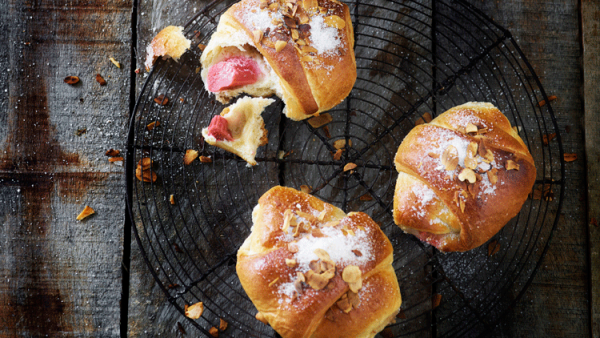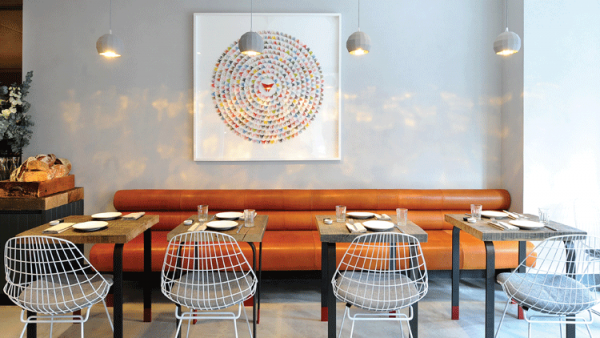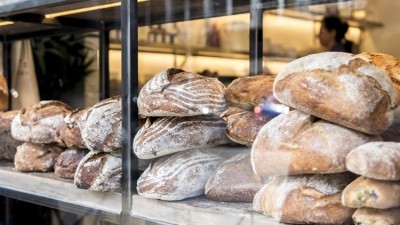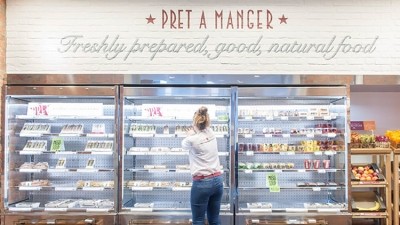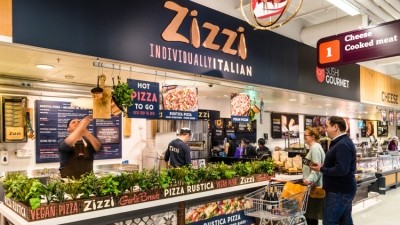On a roll: the rise of the artisan bakery sector
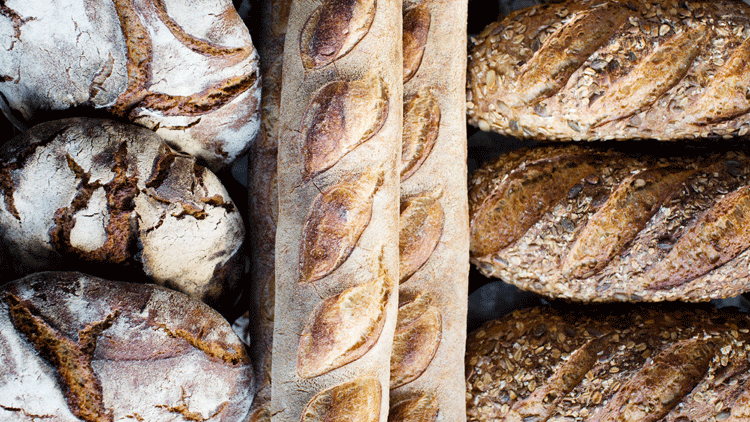
The runaway success of The Great British Bake Off and the huge popularity of national sandwich chains and bakeries such as Pret A Manger, Greggs and Eat certainly bears this out but, more than this, people across the country are becoming increasingly discerning about the type of bread and bakery products they are putting in their mouths.
The popularity of artisan bread is not a new thing. The booming independent bakery sector has enjoyed years of growth thanks to the likes of bakery ‘pin ups’ Dan Lepard and Paul Hollywood and bakeries such as Sally Clarke Bakery (founded 1989) and Baker & Spice (1995), but, over the past few years, the branded artisan bakery sector has started to expand at pace.
A number of key players, most notably Paul, Le Pain Quotidien and Gail’s Bakery are starting to gain nationwide presence and brands such as Ole & Steen, and even Paul Hollywood, with his soon-to-open Knead bakery, are now entering the market to grab a slice of the action.
“London has one of the most sophisticated food scenes in the world. Ole & Steen really wanted to come to London and challenge themselves and come and learn,” says Gordon. “We also wanted to bring something quite different to the UK.”
Ole & Steen’s obvious point of difference is that it is Danish, and thus its breads and pastries have a Scandi feel to them. Pastries on its menu, for example, include the Copenhagener, made with marzipan paste and topped with poppy seeds; the Sarah Bernhardt, a macaroon base topped with chocolate mousse and covered in a shell of dark chocolate named in honour of the French stage actress; and its range of breakfast buns including the kløben, made with cardamom, and a carrot bun with sunflower seeds.
Scandy pastries at Ole & Steen
The company, which runs more than 50 bakeries in Denmark under the Lagkagehuset bakery brand, is looking to make a similar impact over here. As well as serving bread and pastries all day, it has a lunch and dinner offer that includes stews alongside sandwiches and breads such as Parma ham and rosemary and potato foccacia. “Gail’s revolutionised the way that people use bakeries, it has done a great job at making them places people want to come and eat,” says Gordon. “We saw what they were doing and thought we could do something as well.”
A second Ole & Steen has already opened, in Richmond, and the company is about to throw open the doors of its latest bakery in Canary Wharf. This will quickly be followed by a fourth site, due to open in Victoria’s Nova development at the end of this month and a further one on London’s Tottenham Court Road.
Bakers start making bread at 2am and deliver product to the stores by 6.30am. After that, breads and pastries are baked downstairs on site throughout the day.
A question of gluten
The artisan bakery sector might be in rude health, but it seems that a growing number of would-be bread eaters aren’t. According to Coeliac UK, the charity helping people who are gluten intolerant, one in 100 people in the UK has coeliac disease but only 24% of these people are diagnosed. Research has also shown that the number of young children diagnosed with coeliac disease in the UK has almost tripled over the past 20 years.
Such a high number of people now avoiding bread in the UK on health grounds seems to go against the current baking trend. However, the artisan bakery sector is serving products that are potentially suitable for sufferers of coeliac disease, its protagonists claim.
“The food industry likes to speed up processes and elongate shelf life and so have put a lot of additives into bread,” says Gordon. “If you buy bread on the continent or in Denmark it lasts only a couple of days; if you buy it from a supermarket in this country it will probably last a week. Food allergies have scared a lot of people off bread, but I think many people who believe they are wheat intolerant do not have an allergy to bread but to the additives used in them.
“Our products are not processed and that’s what people are excited about. It’s not just us, other businesses like ours are making products that are really good for you and they contain only a few well-sourced ingredients. It’s proper handmade food.”
Gordon isn’t alone in this belief. Matt Jones, co-founder of Bread Ahead bakery and baking school in London’s Borough Market also believes it is the additives found in mass-produced bread, and the commercial yeast used in its production, that many people who believe themselves to be gluten intolerant are actually allergic to.
“Lots of people are intolerant to bread but it’s actually the yeast and the additives they are intolerant of,” he says. “We went through a dark time in the 1970s and ’80s with sliced white bread. It’s horrific stuff and has nothing to do with real food.”
Jones says that the growth in the popularity of sourdough, which is not made with commercial yeast but rather requires a live sourdough culture and a longer fermentation process, is going some way to address this issue. “Sourdough is just proper bread before commercial yeast was invented in the 1960s. If you turn back the clock to the 1940 and ’50s, all bread was sourdough because commercial yeast wasn’t available. A really decent sourdough is so much better for you.”
According to the Real Bread Campaign, several studies have concluded that some people who encounter problems when eating bread made with commercial yeast might be able to eat genuine, long-fermented sourdough. It says that comments on its own small sourdough study add to the growing body of anecdotal evidence to support this.
Jones, who founded and ran organic bakery Flour Power City Bakery between 1999 and 2010 before opening Bread Ahead, reports a huge growth in interest for ‘proper’ sourdough bread. As well as supplying around 120 restaurants with bread through its wholesale arm, Bread Ahead runs a teaching school that has exceeded expectations. According to Jones, the plan was to teach around 20 people a week but the bakery does closer to 300.
The company has also expanded with a second site in Chelsea and also has a bakery in Covent Garden – although it is already contemplating moving it to a larger location to meet demand. The Chelsea site has a café with 12 stools at the bar and Jones is considering moving the counter to make space for tables so more people can sit down. Like Gordon, he cites the rise of Gail’s as being a key catalyst for people wanting more from their bakery.
The spread of sourdough
Gail’s Bakery captured the imagination of the consumer when it opened its first bakery in Hampstead back in 2005. The artisan bread bakery and café chain now has sites across London and has branched outside the M25 with locations in Hove, Farnham and Oxford.
“At the time we provided an alternative to mainstream bread that no one else was doing,” says Romy Miller, marketing director at Gail’s. “The market has moved on a lot since then.”
Gail’s has, in part, been responsible for the growth of sourdough across London, not only through its shops, but its wholesale arm that supplies many of the capital’s top restaurants. Sourdough is its speciality and the company bakes almost 30 different types of bread every day made from eight different sourdough starters, including rye, wholemeal and white.
It has, however, just created a non-sourdough bread recipe in response to customer demand for a more child-friendly loaf that doesn’t have such a hard and chewy crust as sourdough.
Using their loaf: Gail's has expanded to 36 locations
Like Ole & Steen, the company doesn’t bake bread at all its 36 sites but rather makes it centrally because getting the space in central London to bake the amount it requires on a daily basis is too expensive, says Miller. This will dictate the company's future growth. “We are growing sustainably and so close to the baking source and the mother doughs,” she says.
Thanks to the likes of Gail’s, sourdough is much more widely understood than it was a decade ago and is now available across the country in the various supermarket chains and local bakeries. The market for it can only continue to grow, predicts Jones, who draws comparisons to the burgeoning artisan coffee and craft beer sectors.
“The artisan bread category is very similar to those of proper coffee and craft beer,” he says. “Coffee and beer drinkers have become much more interested in the flavours of a product they have consumed for years and the same is happening in bread.”
He does offer a word of caution to anyone considering tapping into this fertile sector. “You have to be prepared to get up early and work hard and the daily problems [of bread baking] never go away. You can’t make large batches of it and eke it out like you can do with coffee or beer. It’s like the newspaper industry, things have to be made fresh every day.”
This is a web version of an article that first appeared in the September issue of Restaurant magazine, the leading title for the UK's restaurant industry. For more features, comment, interviews and in-depth analysis of the restaurant sector subscribe to Restaurant magazine here.
Asian network: New Korean/Japanese brand Soboro is bringing some Asian flair to the UK’s bakery sector.
Launched in Cambridge in July, Saboro is not your typical bakery. Rather, it is owned by Japanese fast-food restaurant chain Wasabi and is a Japanese-Korean concept that marks the group’s move into the bakery and sandwich arena.
Conceived by Wasabi founder Dong Hyun Kim, the idea behind the 75-cover Soboro was to move Japanese and Korean food into different day parts in the UK, in particular breakfast, says Anthony Eadon, head of marketing at Wasabi. “The bakery sector allows us to do this.”
This wasn’t a decision that was taken lightly, and the long-awaited Cambridge debut was more than a year in the making. A dedicated development team was formed last autumn, led by Japanese baker and pastry chef Hiroyo Kurusu, who remains on the team and continues to supervise the daily production. Every single recipe has been developed specifically for the store, balancing the familiar with the unfamiliar.
“We took a blended approach to product development,” says Eadon. “We wanted to serve items that people found familiar and could understand, and bakery ticks that box. But we also wanted to provide something unique.”
So, alongside traditional bread-based options such as ham and cheddar toasties and egg mayo sandwiches, Soboro has menu items including a chicken katsu sandwich and a BLT wasabi mayo sandwich as well as a rolled matcha croissant. Its filled buns move things further into uncharted territory, with options such as a baked chicken curry bun, azuki bean bun and spicy vegetable bun, and it also serves chicken curry and potato croquette doughnuts.
“The UK has a great tradition in baking but there is now a level of commoditisation, of breaded products,” says Eadon. “Soboro is a response to this. Customers understand that not all bakery products are equal and that very skilled bakery chefs can produce some great products and also some very interesting things.”
